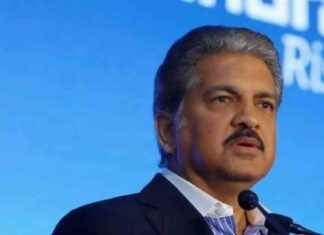As the anticipation builds for India’s economic future in the upcoming financial year of 2025-2026, industry leaders are expressing a sense of optimism about the country’s growth prospects. According to a recent pre-budget survey conducted by global agency Grant Thornton, a majority of industry leaders foresee a surge in economic growth ranging from 6-6.9 per cent.
However, what truly stands out is the 22 per cent of respondents who are even more bullish about India’s economic potential, predicting growth rates in the range of 7-7.9 per cent. These numbers underscore a prevailing sense of confidence in India’s ability to navigate the complexities of the global economy and emerge as a strong player on the world stage.
The survey sheds light on the pivotal role that technological advancements and regulatory reforms play in enhancing the ease of doing business, ultimately driving economic growth. By aligning fiscal policies with these priorities, the upcoming Budget 2025 has the potential to become a significant growth catalyst, fostering equity and efficiency within the economy.
Expert Insights on India’s Economic Outlook
Leading global institutions such as the International Monetary Fund (IMF) and the United Nations have maintained their forecasts for India’s real GDP growth, with estimates hovering around 6.5-6.6 per cent for the upcoming fiscal year. However, the World Bank and Moody’s have revised their growth projections, with figures ranging from 6.5 per cent to 7 per cent for FY 2024-25.
This divergence in forecasts underscores the dynamic nature of India’s economic landscape and the need for agile policymaking to navigate uncertainties and capitalize on opportunities. As industry leaders gear up for the upcoming budget, there is a consensus on key priorities that need to be addressed to sustain growth and foster a conducive business environment.
Key Priorities for Budget 2025
The survey highlights several critical priorities that industry leaders are advocating for in the upcoming budget. A significant 84 per cent of respondents emphasize the importance of reducing GST on health insurance, a move that could enhance access to healthcare services and improve the overall well-being of the population.
Moreover, 68 per cent of stakeholders are pushing for measures to expand financial inclusion through enhanced SME lending and the development of digital public infrastructure. This focus on bolstering the financial ecosystem reflects a broader commitment to empowering smaller businesses and driving economic growth from the grassroots level.
In addition, 13 per cent of respondents are calling for new tax incentives to stimulate research and development, signaling a growing recognition of the importance of innovation in driving long-term economic prosperity. These demands underscore the multifaceted nature of India’s economic challenges and the need for targeted interventions to unlock the country’s full potential.
As the countdown to Budget 2025 begins, industry leaders are emphasizing the importance of better regulatory coordination between banking, securities, and insurance bodies. In particular, the fintech sector is calling for easier access to capital and tax incentives to spur innovation in emerging technologies such as blockchain and artificial intelligence.
With finance minister Nirmala Sitharaman set to present the Union Budget for 2025-26 on February 1, all eyes are on the government to deliver a budget that addresses these pressing concerns and sets the stage for sustained economic growth. In a time of global economic uncertainties and domestic challenges, the budget represents a critical opportunity to chart a course towards a more inclusive, resilient, and vibrant economic future for India.























